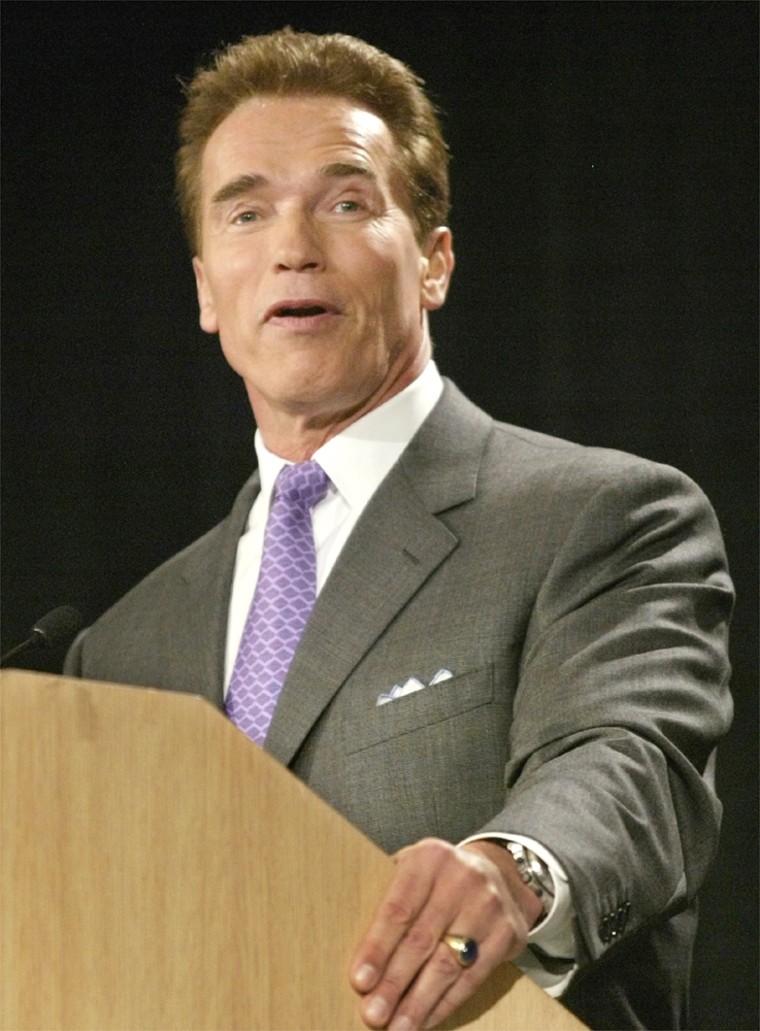Gov. Arnold Schwarzenegger said Tuesday that he would pay $4.5 million on top of the $5 million he already spent to be elected after a judge ruled the actor broke a state campaign finance law by taking out a loan.
In a characteristic show of upbeat spin, Schwarzenegger praised the judge’s decision against him and said he had always intended to pay back the money.
“The four-and-a-half million we got loaned from the bank, I always intended to pay that back myself, so it was a great decision,” Schwarzenegger told a Sacramento Press Club lunch. ”We never wanted to raise the money to pay it back. I myself pay for that.”
Superior Court Judge Loren McMaster ruled Monday that Schwarzenegger broke the law by borrowing more than $4.5 million on his own account to finance his run for governor in October’s recall election. The loan violated a law restricting candidates from accepting personal loans of more than $100,000 for their campaigns, the judge said.
“He broke the law by a multiple of 40,” said Lowell Finley, the lawyer who filed the lawsuit challenging the loan.
An adviser to Schwarzenegger said the $4.5 million would bring his total personal bill to get elected to $9.5 million.
That is less than a third of what he earned before tax for his starring role in the last “Terminator” movie.
Election watchdog disagrees with judge
Schwarzenegger’s lawyer said the governor, who swept into office vowing to end “politics as usual” in California, had relied on a ruling from the state’s Fair Political Practices Commission that his actions were legal.
“We are gratified that the judge held that the campaign acted in good faith and in reliance on the FPPC’s erroneous regulation,” Schwarzenegger attorney Colleen McAndrews said.
The commission, the state’s election watchdog, issued a statement Tuesday disagreeing with the judge’s ruling.
“The commission had to make several close calls in deciding how to interpret the complex statutory scheme,” chair Liane Randolph said. “While we respectfully disagree with the court’s conclusion that the regulation was not entitled to greater deference, we will take his order into consideration in reviewing the regulation.”
The lawsuit, filed on behalf of a Democratic party activist, centers on a state law intended to prevent candidates from taking out large personal loans and then using special interest money after the election to repay the debt.
Schwarzenegger had criticized Lt. Gov. Cruz Bustamante, a Democrat, for accepting millions in donations from Indian tribes to finance his unsuccessful run for governor.
The commission sued Bustamante last month, accusing the Democrat of taking more than $3.8 million in illegal contributions. Bustamante’s lawyers have said the lieutenant governor acted only after consulting with the commission.
